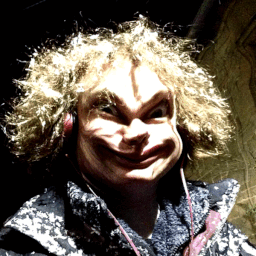- Welcome to Cook'd and Bomb'd.
-
 The Captain Tom grift continues...
by beanheadmcginty
The Captain Tom grift continues...
by beanheadmcginty
[Today at 01:24:34 AM] -
 The second thread of your...
by machotrouts
The second thread of your...
by machotrouts
[Today at 01:22:45 AM] -
 Richie Sunak - The Decline...
by beanheadmcginty
Richie Sunak - The Decline...
by beanheadmcginty
[Today at 01:18:41 AM] -
 Lived experience
by Dex Sawash
Lived experience
by Dex Sawash
[Today at 01:18:28 AM] -
 Space Ghost Coast to Coast...
by Barry Admin
Space Ghost Coast to Coast...
by Barry Admin
[Today at 01:13:52 AM] -
 Python Wars
by Cold Meat Platter
Python Wars
by Cold Meat Platter
[Today at 01:12:32 AM] -
 Star Trek: Deep Space Nine...
by Blumf
Star Trek: Deep Space Nine...
by Blumf
[Today at 01:12:03 AM] -
 Load of horses gone mental...
by Goldentony
Load of horses gone mental...
by Goldentony
[Today at 01:07:45 AM] -
 Doctor Who - Series 14, part...
by Ambient Sheep
Doctor Who - Series 14, part...
by Ambient Sheep
[Today at 01:07:35 AM] -
 London CaB Meet 4th May 2024...
by pancreas
London CaB Meet 4th May 2024...
by pancreas
[Today at 01:02:42 AM]
Members
 Total Members: 17,826
Total Members: 17,826 Latest: skinnylike
Latest: skinnylike
Stats
 Total Posts: 5,584,331
Total Posts: 5,584,331 Total Topics: 106,754
Total Topics: 106,754 Online Today: 1,132
Online Today: 1,132 Online Ever: 3,311
Online Ever: 3,311- (July 08, 2021, 03:14:41 AM)
Users Online
 Users: 44
Users: 44 Guests: 975
Guests: 975 Total: 1019
Total: 1019 easytarget
easytarget beanheadmcginty
beanheadmcginty machotrouts
machotrouts Peter St. John
Peter St. John DelurkedToHelp
DelurkedToHelp famethrowa
famethrowa Found Wound Round
Found Wound Round neveragain
neveragain dazed_and_bemused
dazed_and_bemused JimminyJillikers
JimminyJillikers Dr M1nx PhD
Dr M1nx PhD privatefriend
privatefriend McDead
McDead Dex Sawash
Dex Sawash phes
phes Mx Wrongs
Mx Wrongs Goldentony
Goldentony DocDaneeka
DocDaneeka WEARSTHEICECREAM
WEARSTHEICECREAM Mobius
Mobius Lenni
Lenni fucking ponderous
fucking ponderous Cold Meat Platter
Cold Meat Platter lazyhour
lazyhour Ascent
Ascent pupshaw
pupshaw you stole my goddam house
you stole my goddam house Ted_Dibiase
Ted_Dibiase Theoretical Dentist
Theoretical Dentist CS Lewis Jr.
CS Lewis Jr. pancreas
pancreas JesusAndYourBush
JesusAndYourBush Fishfinger
Fishfinger Stoneage Dinosaurs
Stoneage Dinosaurs Blumf
Blumf Armin Meiwes
Armin Meiwes Hank the Rapper
Hank the Rapper
